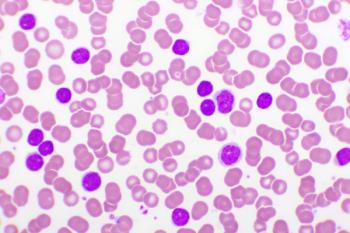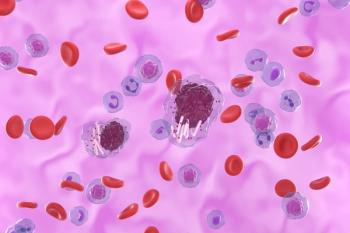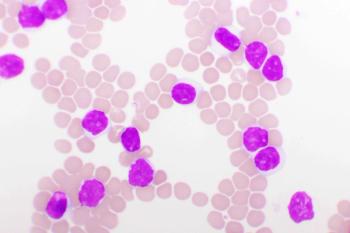
Chronic Lymphocytic Leukemia/Small Lymphocytic Lymphoma
Latest News
Video Series

Latest Videos
Podcasts
CME Content
More News

In an interview during ASH 2025, Ontada's Ira Zackon, MD explores the role of BTK inhibitors in chronic lymphocytic leukemia treatment, highlighting real-world challenges and emerging therapy strategies.


ASH 2025 reveals groundbreaking trial data on fixed-duration therapies for chronic lymphocytic leukemia, non-Hodgkin lymphoma, and multiple myeloma, enhancing patient outcomes and reducing costs.

This year’s most-read articles on CLL highlighted research and insights on personalized therapy, long-term remission, and next-generation cell treatments.

Sequential BTK and BCL2 inhibitors yield high initial response rates, but durability remains a challenge in the real-world setting for CLL.

Real-world evidence highlights the effectiveness of lisocabtagene maraleucel in treating relapsed or refractory chronic lymphocytic leukemia (R/R CLL).

With a follow-up of up to 6 years, the median progression-free survival for long-term extension participants was 52.5 months.

The study suggests that adding a Bruton tyrosine kinase inhibitor (BTKi) to frontline chemoimmunotherapy in Richter transformation improved complete response rates and progression-free survival compared with chemoimmunotherapy alone, though overall survival benefits remained unclear.

There is no cure for chronic lymphocytic leukemia, but an array of new therapeutic strategies are improving outcomes for patients.

Pirtobrutinib significantly improved progression-free survival in treatment-naïve CLL compared with bendamustine plus rituximab.

Adequate CD19-positive cell content is required to reliably identify both dominant and subclonal TP53 mutations.

Pirtobrutinib is now fully approved for CLL/SLL in those previously treated with Bruton tyrosine kinase inhibitors.

Global chronic lymphocytic leukemia incidence and mortality is declining, but the disease’s prevalence has increased modestly.

Altered expression across multiple ncRNA classes consistently correlates with inferior OS, PFS, and TTT in nearly 5000 patients.

AI, especially deep learning applied to blood smear imaging, can greatly improve the speed and accuracy of leukemia detection and subtype classification.

The analysis found that zanubrutinib provides similar progression-free survival to fixed-duration venetoclax plus ibrutinib but with consistently fewer serious side effects, suggesting a more favorable overall safety profile.

Modern ibrutinib-based approaches substantially narrow the traditional survival gap observed in CLL.

Immunoglobulin heavy chain variable is an important prognostic biomarker in chronic lymphocytic leukemia, but the authors of a new review say its role has yet to be fully understood.

CAR T-cell therapy achieves meaningful responses and survival gains in this aggressive CLL complication.

Experts discuss the evolving landscape of CLL treatment, cellular therapies, and innovative diagnostics shaping patient care and cost-effectiveness in oncology.

Despite improved selectivity, real-world data point to persistent cardiovascular challenges even with next-generation BTKi therapies.

Cardiac adverse events were lower among patients taking zanubrutinib compared with ibrutinib in the real-world setting.

Serum biochemical fingerprints can stratify chronic lymphocytic leukemia (CLL) outcomes and uncover heterogeneity within molecularly defined low-risk disease.

Patients with NOTCH1 mutations derive greater benefit from BTK inhibitor treatment than from immunochemotherapy for chronic lymphocytic leukemia (CLL).

Nanopore sequencing of chronic lymphocytic leukemia (CLL) may be a particularly good fit in under-resourced areas due to its lower cost and smaller laboratory footprint.


















